While the unpacking operator * is not often used for unpacking a single iterable into a list (therefore [*it] is a bit less readable than list(it)), it is handy and more Pythonic in several other cases:
1. Unpacking an iterable into a single list / tuple / set, adding other values:
mixed_list = [a, *it, b]
This is more concise and efficient than
mixed_list = [a]
mixed_list.extend(it)
mixed_list.append(b)
2. Unpacking multiple iterables + values into a list / tuple / set
mixed_list = [*it1, *it2, a, b, ... ]
This is similar to the first case.
3. Unpacking an iterable into a list, excluding elements
first, *rest = it
This extracts the first element of it into first and unpacks the rest into a list. One can even do
_, *mid, last = it
This dumps the first element of it into a don't-care variable _, saves last element into last, and unpacks the rest into a list mid.
4. Nested unpacking of multiple levels of an iterable in one statement
it = (0, range(5), 3)
a1, (*a2,), a3 = it # Unpack the second element of it into a list a2
e1, (first, *rest), e3 = it # Separate the first element from the rest while unpacking it[1]
This can also be used in for statements:
from itertools import groupby
s = "Axyz123Bcba345D"
for k, (first, *rest) in groupby(s, key=str.isalpha):
...
